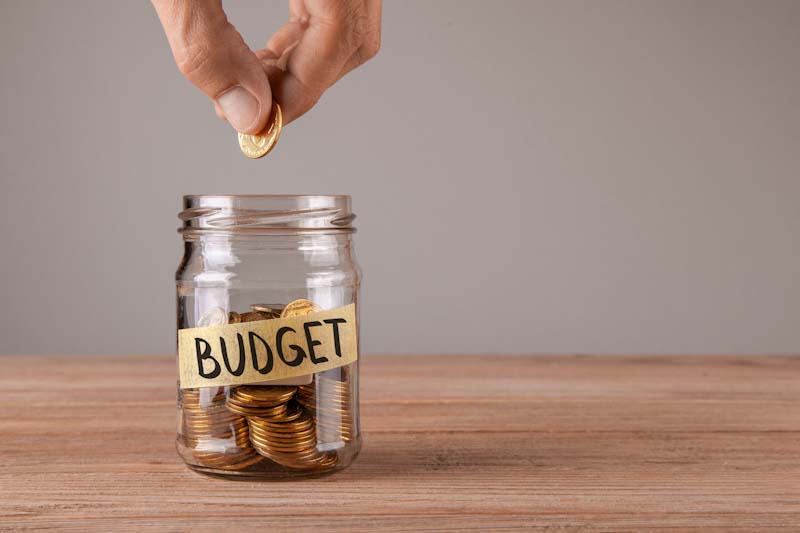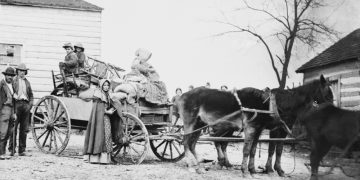With the rising cost of living and a looming economic collapse, an emergency fund is a must-have right now. An illness, injury or natural disaster could also occur when you least expect it, putting you in substantial debt.
However, people with low-paying jobs can’t afford to set aside a large portion of their budgets for future events. They’re too busy living paycheck to paycheck to focus on saving money, which leaves them vulnerable to the costs of life-changing events.
If this problem resonates with you, don’t fret. This guide will show you how to quickly build an emergency fund with a low income.
How Much Should You Save for an Emergency Fund?
First and foremost, you need to make sure you set aside enough money for the emergency fund to be worthwhile. Emergency funds should cover three to six months of your most essential expenses – food, utilities, transportation, survival tools, etc. Take all of your optional expenses out of the equation and focus on the necessities.
You should store your emergency fund in multiple locations:
- Cash: Cash is the best option for low-income individuals because it gives you easy access to the funds if you’re in a pinch. However, keep in mind that cash is more likely to be stolen, lost or damaged.
- Prepaid card: You can also load money into a prepaid card. It’s not connected with a bank or credit union so you can only spend the money on the card, which can help you control your spending.
- Bank or credit union account: Banks and credit unions are generally the safest places to put your emergency fund. However, there is some risk involved given the current state of the economy. Bank failures are more likely to happen than usual.
You have to set a reasonable savings goal if you have a low income. Start with small additions that won’t throw off your routine, such as $5 or $10 per day. Be patient and put the cash out of sight so you won’t feel tempted to spend it.
Once you establish a solid base for your emergency fund, follow these steps to improve your spending habits and increase your daily contributions.
1. Pursue a Second Income Source
The best advice for anyone on a low budget is to pursue additional income sources. It’s not the easiest solution, but it is the simplest. If you want to save more money, you have to make more money. You can start by selling old clothes, books and other unwanted items on popular e-commerce sites like eBay.
Here are some other side hustles you should consider:
- Ride sharing services: If you have a clean driving record and are comfortable with strangers, you can easily get a job as a driver for Uber or Lyft.
- Food deliveries: Grubhub, Doordash and other food delivery services allow you to choose your own hours and assignments, making it highly flexible for employees.
- Blogging: You can start a blog about survivalism or other topics of interest, build a following and earn money through affiliate marketing and guest blog posts.
- Freelancing: Companies are always looking for freelance writers, editors and photographers. If any of these jobs interest you, you’ll have no shortage of opportunities.
- Online surveys: Companies will also pay you to take online surveys. The pay rates are small, but you can take as many surveys as you want.
If your financial situation is desperate, you might have to do something more drastic. Getting a second job and renting out your home or apartment are always options. Nobody wants to take these measures, but sometimes they’re necessary to ensure long-term financial stability.
Earn Your Food Independence NOW
2. Abide By the 50/30/20 Rule
The 50/30/20 Rule is a tried and true way for people on a budget to multiply their savings. It gives you concrete, straightforward rules and emphasizes the importance of essential expenses. Other money management techniques might give you more spending flexibility, but you don’t need flexibility. You need strict boundaries to overcome a low income.
The rules are simple: 50% of your money is for your necessities, 30% goes toward other random expenses, and 20% goes toward your long-term savings – or in this case, your emergency fund. If you want to make substantial additions to your emergency fund immediately, this strategy is the way to go.
The 50/30/20 rule is so effective because it places full accountability on you, which is exactly what you need to control your spending and build an emergency fund. It won’t be easy, but desperate times call for desperate measures.
3. Get Help From Finance Apps
In order to follow the 50/30/20 Rule and other strict money management strategies, you need to use finance apps. They will help you track every cent of your spending and stay within your tight budget. These apps are 100% free and have helped thousands of people save money:
- Mint
- Monefy
- Spendee
- GoodBudget
- EveryDollar
- PocketGuard
Along with allowing you to record all of your expenses, these apps will also send automatic reminders that help you stick to your savings goals. If you’re not on track to reach your weekly or monthly target, the apps will show you where you need to improve.
4. Find Ways to Save on Necessities
Your food and transportation budgets could be larger than necessary. With gas prices well above $3 per gallon in most states, you should try to cut down on driving wherever possible. Today’s technology offers many other food buying options besides driving to a supermarket or restaurant. You can get all of your food delivered and avoid spending a dime on gas.
Services like Grubhub, DoorDash and Uber Eats let you order food from all of your favorite restaurants. Amazon, Walmart and other big-name retailers enable you to get all of your grocery items, offering free same-day delivery and other rewards for purchases exceeding a certain amount – usually $35.

You should also take advantage of helpful resources like coupon finders, price-match policies and customer loyalty programs. Some businesses will even offer you discounts simply for subscribing to their email newsletters or participating in a social media promotion.
We know survivalists pride themselves on being self-sufficient, but when money is tight, sometimes you need help from the big guys. Finding creative ways to save on your essential expenses will free up more money for your emergency fund.
5. Rethink Your Survival Strategies
Many survivalists these days have the same fatal flaw: focusing on their supplies instead of developing their survival skills. Not only does this mistake leave you unprepared for an emergency situation, but it also eats into your limited budget. You need to reevaluate your survival strategies and stop obsessing over the latest gear.
In other words, you need to adopt a more primitive approach to your survivalist lifestyle. Get back to the basics. You don’t have to buy the latest outdoor equipment or electronics. Humans survived for thousands of years with the most basic tools, so you can too. Develop the intangibles – fitness, first aid, hunting, etc. – instead of splurging on tools you don’t need.
The only exceptions should be your emergency food and water supply. Feel free to continue stocking up on non-perishable items and collecting water. Other stuff like clothing and weapons are undeniably important, but they should take a backseat to your emergency fund until you build up a strong savings base.
6. Automate Your Savings
If you’re still manually depositing your income into your savings account, you’re doing something wrong. Manual deposits will tempt you to spend the money on unnecessary things instead of sending it to your prepaid card or bank account right away. Many people go broke for this very reason.
Direct deposits remove the temptation to waste your hard-earned paychecks and send your money straight to the bank. If you can’t see it, you won’t spend it. You could also arrange for recurring transfers with your bank or credit union so money goes from your checking account to your savings. This set-up ensures constant contributions to your emergency fund.
However, you have to make sure you don’t accumulate overdraft fees. Your bank will charge an overdraft fee if your checking account doesn’t have enough money to complete the automatic transaction. Remember to check your balance regularly so you don’t fall behind.
7. Track Your Subscriptions
Subscription services can be a plague on your budget, especially if you forget they exist. Many people sign up for a subscription and forget about it a few weeks later, but they still unknowingly pay for the recurring fees. You need to track your subscriptions for all of these services if you have them:
- TV networks
- Websites
- Magazines
- Newspapers
- Gym memberships
- Landscaping
- House cleaning
When combined, these subscriptions can make up more than half of your monthly expenses. A former roommate or significant other might also be taking advantage of the services. Don’t let anyone or anything take advantage of you. Terminate all subscriptions that you don’t need to give yourself peace of mind.
Saving Money Takes Time
The most important thing to remember is that saving money takes time. You won’t build your emergency fund in a few weeks, or even a few months. Focus on making small, consistent contributions. Adjust your lifestyle and spending habits as needed. You might suffer some short-term setbacks, but you’ll be much better off in the long run.






















































































I get paid weekly ($13.75/hr) and I take $20.00 each week and put it in a fireproof box. At the end of the year I have $1040.00 saved up. In 5 years that’s $5,200.00.. The secret is to take the $20.00 out every week as soon as the paycheck is cashed and DO NOT SPEND IT.
How does that work out for you with the loss of purchasing power due to the rising prices of inflation?